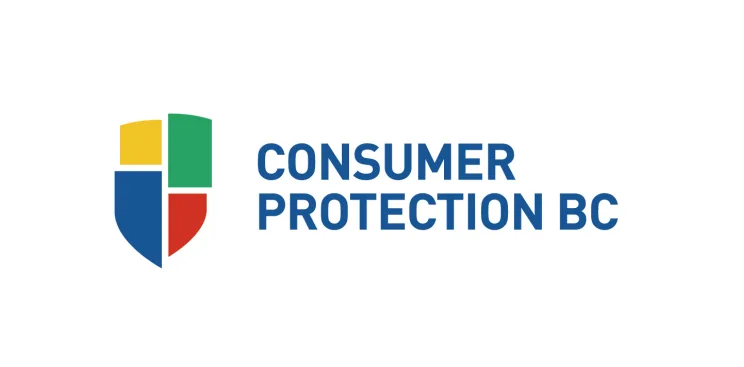
Can a store advertise a "sale" indefinitely?
When you make a purchase, you are making a contract. A contract is a legally enforceable agreement. As parties to the agreement, you and the seller have certain legal rights and obligations.
What you should know
“I got an email saying I was entitled to a 30% ‘discount’ off any pair of shoes from the Shoes Aplenty website. I bought a pair of loafers. I later learned that I paid the ordinary price they charge everyone. The term ‘discount’ gave me the impression I was getting a bargain price. I wasn’t. That’s misleading advertising.”
– Winston, Delta, BC

Under BC law, sellers aren’t allowed to mislead you to convince you to buy something. In their advertising and in their conversations with you, a seller can’t say anything that might be deceiving.
For example, a seller must not advertise or tell you that:
what they’re selling has uses or benefits it doesn’t have
what they’re selling is of a particular standard or quality when it isn’t
they have an approval, status, or connection that they don’t have
you’re getting a deal when really they’re just offering the same thing you can get elsewhere for the same price
There are also federal laws that prohibit sellers from advertising or saying anything false or misleading. For example, a seller must not advertise or tell you that:
what they’re selling is “on sale" or "special" unless the price is lower than the ordinary selling price — and they can’t artificially increase the ordinary price
what they’re selling performs at a certain level — for example, “the fastest network in Canada” — unless they can prove it
what they’re selling is endorsed by someone when that isn’t true (that is, they can’t make up a fake testimonial)
No one need actually be deceived for a court to find that a representation is misleading. If the general impression of the representation is misleading, that’s enough.
Here are examples of misleading representations:
A money lender advertises “CMHC Approved” loans, when neither the lender nor their loan has that designation.
A retailer advertises “Your discount: 50% off all prices shown in this catalogue," when the discount price is in fact the ordinary selling price.
"Free insurance with the purchase of a car," but the free offer only applies when customers pay the full asking price.
Also against the law are “bait and switch” tactics. That’s when a seller advertises something at a bargain price but doesn’t stock reasonable quantities. You’re lured to the store by the low price, only to discover that what was advertised (the “bait”) is sold out. The seller then tries to “switch” you to buy some other (typically more expensive) item. They can’t do that. The seller has to stock reasonable quantities or offer you a rain check.
Sellers who break these laws can be fined, jailed, or ordered to compensate consumers who suffer losses.
Under BC law, sellers aren’t allowed to act unfairly towards you or knowingly take advantage of you.
For example, a seller can’t charge you a price that’s far more than what others are charging for the same thing.
A seller can’t put undue pressure on you to to buy. For example, they can’t make you to sign a contract immediately or you’ll miss out on the “special price” they’re offering.
As well, a seller can’t knowingly take advantage of you. For example, they can’t coax you to buy something they know you can’t afford.
Nor can they exploit any vulnerability you may have — such as a physical or mental disability, illiteracy, or language difficulty — that might affect your ability to protect your own interests. For example, a seller can’t force you to sign a complicated contract you don’t understand in a language you can’t easily read.
If the seller does something unfair, any agreement you sign with them is invalid.
Under the law, a level of quality, performance, and durability is implied in every sale of goods. When you buy something from a business, it has to:
be fit for the purpose you bought it for
be of “merchantable” quality (that is, it has to work and can’t be damaged)
be durable for a reasonable period of time
match the advertised description
These conditions are sometimes referred to as the legal warranty, as they are established by a law called the Sale of Goods Act. This legal warranty applies whether the seller mentions it or not. It’s in addition to any warranty the seller or manufacturer provide.
If the item you bought is faulty or doesn't work, the legal warranty gives you the right to get the item repaired or replaced, or to cancel the contract and get a full refund. (See our guidance on if there is a problem with a purchase for more details on your options.)
In addition to the legal warranty, many sellers and manufacturers offer their own warranty or guarantee for their product. Learn more about how warranties and guarantees work.
You don't have the same legal protections if you buy from a private seller
If you buy from a private individual, the legal warranty is more limited than if you buy from a business. The item still has to be durable for a reasonable period of time and match the description of the goods. But it doesn’t have to meet the conditions of being “fit for the purpose you bought it for” and of “merchantable quality,” as goods bought from a business do.
Sometimes, a business will say a product is sold "as is." This suggests you shouldn’t expect help with any repairs or service if there are problems.
But in fact the legal warranty applies to all new products, no matter what the business says. When a business sells a new product “as is,” the item must still be fit for the purpose you bought it for, of merchantable quality, and reasonably durable.
The legal warranty can be waived for used items. Be cautious if you’re asked to waive it. You’ll want to be sure you’ve done everything you can to protect yourself by following the steps below.
You may have to go to court to enforce your rights
The legal warranty applies to any new product sold by a business, including one sold “as is.” But be aware that the legal warranty is the subject of much legal interpretation. To enforce your rights, you might have to go to court. Think twice about any product that’s sold "as is," unless you're willing to take the risk that if it doesn't work properly, it might be difficult and costly to get things put right.
Prevent problems
When you buy something, having researched the item in advance could help you avoid legal problems down the road.
Gather information from credible sources on the item you’re considering purchasing. For example, if you’re buying a car, try the Canadian Black Book or AutoTrader.ca to learn the average price of the vehicle models you’re considering.
Read reviews from trustworthy sources. Consumer Reports is an independent, non-profit source of product reviews. Sites like Wirecutter also offer well-researched reviews of a wide range of products.
See what other people are saying about the company or product by searching online for its name and the word “reviews” or “complaints.”
When you make an offer to the seller, proceed boldly. Be polite and reasonable, but firm.
Even when the law doesn’t say you have to have a written contract, you should have one if you’re exchanging something expensive. For example, a written contract is a good idea if you’re buying or selling:
a used car
an appliance
an electronic device
a work of art
a boat or a trailer
If a problem arises, you can go back to the written contract rather than argue over “who said what” when the agreement was reached.
Keep your contract simple
A contract doesn’t have to be pages long and full of legalese. In fact, it’s better if the contract is concise and in language all parties understand. See our template for a basic contract and tips on how to write a legal contract.
Read the fine print on any contract before you sign. Don’t take this step lightly.
Go over every section, including any text on the reverse side of printed pages.
Ask the other party to explain anything you don’t understand.
Fill in all areas of the document, and put a line through any blank spaces to prevent anything being added later.
If the other party makes a counteroffer to your original offer and you’d like to think about it, that’s okay. You can simply stop the deal if you feel like you’re being pressured into paying too much or buying additional features.
Common questions
When you make a purchase, the seller may suggest you buy an extended warranty. This is the seller’s promise to cover repairs and maintenance for a given period if problems arise.
But be aware that an extended warranty may not give you any more rights than you have already through the legal warranty explained above. If you're thinking about an extended warranty, check its terms:
How long is it good for?
Where will you have to go to get it repaired?
Does the extended warranty cover parts and service, or just one or the other?
Who can help

Consumer Protection BC
Assistance relating to certain types of consumer problems and contracts in BC.

Better Business Bureau (BBB)
Receives complaints about local businesses that are members.

Competition Bureau
Deals with complaints about false or misleading advertising.
